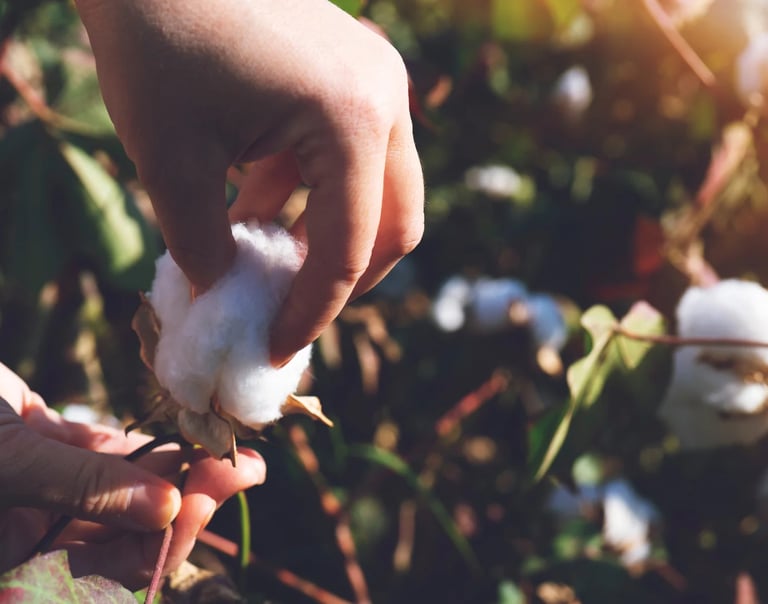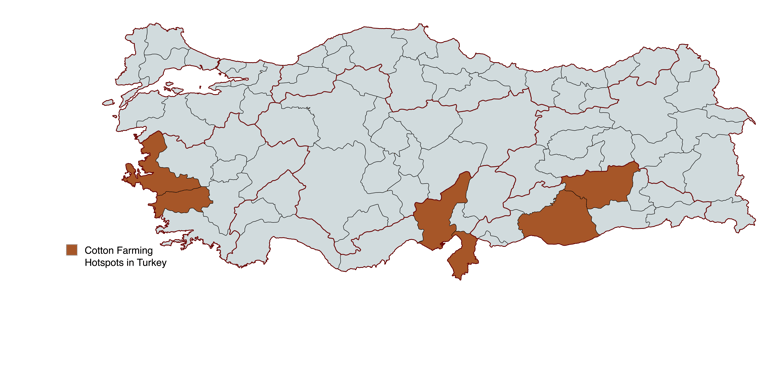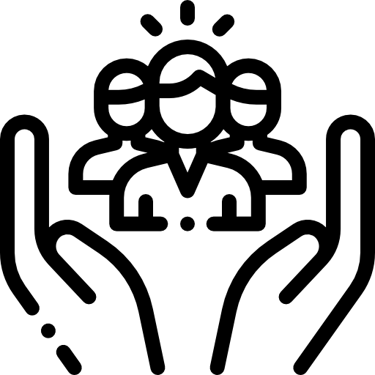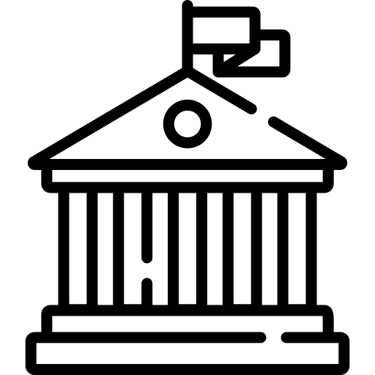Empowering Sustainability: Transforming Cotton Farming and Manufacturing in Turkey
Sustainable Cotton Training Program in Turkey
The textile industry plays a pivotal role in Turkey’s economy, contributing 7% to the national GDP and positioning the country as the 4th largest global textile manufacturer. However, the industry heavily relies on small-scale farmers and manufacturers, with 56% of the workforce being women, most of whom lack formal education beyond high school.


This project aims to:
Empower women in the textile sector.
Promote sustainable cotton farming and manufacturing techniques.
Enhance Turkey's competitive edge in the global textile market.
To empower women in Turkey's textile industry by fostering sustainable cotton farming and manufacturing practices, enhancing environmental responsibility, and helping the competitiveness of Turkey’s textile sector in the global market
1- Mission Statement
Mapping Turkey's Sustainable Cotton Regions


Aydin
Izmir
Adana
Hatay
Diyarbakir
Sanliurfa
1. Educating 16,000 small-scale farmers and manufacturers, particularly women, on sustainable cotton farming and manufacturing techniques
2.Reducing pesticide use and water consumption in cotton farming
3.Increasing the adoption of sustainable practices in Turkey’s textile industry
4.Establishing a traceable system for sustainable cotton production through licensing
5.Promoting women’s empowerment and improving their economic opportunities within the textile industry
2- Objectives
Collaborate with local universities to create a sustainable farming and manufacturing curriculum.
Select and train tutors for program delivery.
3- Planning Process
Develop a marketing communication plan to raise awareness, secure funding, and recruit participants.
Partner with NGOs and government bodies to establish the fund.
Engage local farmers and manufacturers in targeted regions: Şanlıurfa, Aydın, Hatay, Diyarbakır, Adana, and İzmir.
Teach sustainable cotton farming and eco-friendly manufacturing techniques.
Create a digitally trackable license for program participants, ensuring product traceability for consumers.
Curriculum Development
Implementation
Marketing and Outreach
Digital Licensing
1- Partner with NGOs, sponsors, and government bodies, including:
2- Use social media to:
3- Deliver training programs:
UNDP, WWF, and the Ministry of Environment, Urbanization and Climate Change.
Textile companies supporting sustainable practices.
Raise awareness about the program.
Attract participants and funding.
Advisory boards set program principles.
Local universities execute the training.
4- Monitor progress through KPIs:
Number of participants.
Area covered.
Cotton output metrics.
5- Issue sustainability licenses:
Enable product traceability for consumers.
Provide competitive advantage to manufacturers using sustainable cotton.
4- Execution Process
Focus on the 56% of the textile workforce who are women, especially those with limited formal education.
Prioritize the south and southeast regions of Turkey, which are vital to the textile industry.
Encourage participation through collaboration with farmers, manufacturers, and local leaders.
Empowering Women
Targeting Underserved Regions
Engaging Local Communities
5- Community Involvement
6- ESG Perspective
E






S
G
Reducing pesticide use and water consumption
Supporting climate-resilient practices
Empowering woman in agricultural workforce
Strengthening underserved regions
Establishing strong advisory and monitoring framework to oversee program's implementation and KPIs
Establishing the “Turkey Sustainable Cotton Farming and Manufacturing Innovation Fund” supported by
UNDP and WWF
The Ministry of Environment, Urbanization and Climate Change.
Sponsorship from textile companies
Leveraging ongoing investments in sustainable cotton to ensure the program's long-term financial sustainability
7- Financial Modeling
Number of participants trained.
Geographic area covered.
Cotton production and manufacturing output.
Collect feedback through surveys and community discussions.
Adjust training methods and goals as needed.
Publish monthly/annual reports to share progress and results with stakeholders.
KPIs Monitoring
Participant Feedback
Transparency
8- Evaluation & Feedback
1- Expand the program to additional regions in Turkey and other textile-producing countries.
2- Develop partnerships with global brands seeking sustainable supply chains.
3- Support innovation in sustainable textile manufacturing techniques.
4- Strengthen the licensing system to enhance the global competitiveness of Turkish textiles.
5- Build further initiatives focused on environmental sustainability and women’s empowerment in other sectors.
